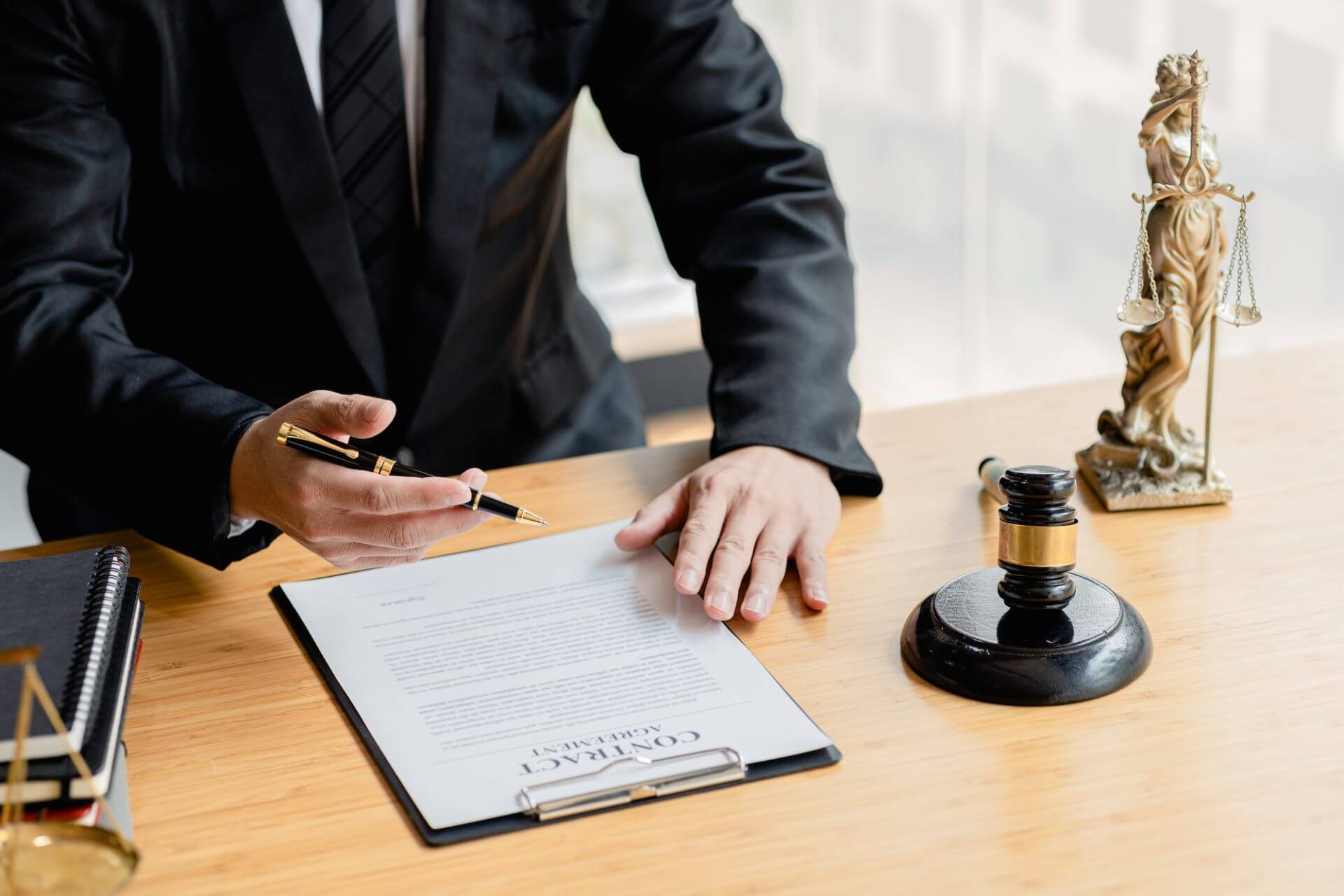When you’ve been injured in an accident, it’s only natural to have questions about your legal rights and the process of filing a personal injury claim. One of the most common questions people have is how long they have to file a claim after an accident. In this blog post, we will explore the statute of limitations for personal injury claims in Ontario, the importance of adhering to the time limits, the consequences of missing the limitation period, and the necessary steps to take when filing a claim. We will also discuss the role of insurance companies and the benefits of seeking legal advice for your personal injury claim. So, let’s dive in and explore the critical aspects of how long you have to file a personal injury claim after an accident.
Understanding Personal Injury Claims
Before we delve into the time limits for filing a personal injury claim, it’s important to have a clear understanding of what constitutes a personal injury. A personal injury refers to any physical or psychological injury, illness, or disease that an individual suffers as a result of someone else’s negligence or wrongful act. It can also include damage to property, legal expenses, and other financial losses that may arise from the accident.
Personal injury claims can arise from various incidents, such as car accidents, medical malpractice, workplace accidents, and injuries caused by defective products. For example, if you sustain injuries in a car accident due to another driver’s negligence, you may have a personal injury claim. Similarly, if you experience medical negligence resulting in harm or injury, a medical malpractice claim may be appropriate. Understanding the different types of personal injury claims is crucial in determining the legal action you can pursue to seek compensation for your injuries.
What Constitutes a Personal Injury?
A personal injury claim arises when the negligence of another party causes harm to the injured person. Negligence refers to the failure to exercise the level of care that a reasonable person would under similar circumstances. Some common examples of personal injury claims include car accidents, medical malpractice, and slip and fall accidents.
In the case of car accidents, if another driver is responsible for the collision, you may be entitled to compensation for your injuries. Personal injury claims can also result from medical malpractice, where a healthcare professional’s negligence leads to injury or wrongful death of the patient. Slip and fall accidents, where an individual is injured on someone else’s property due to the property owner’s negligence, can also give rise to personal injury claims. Additionally, injuries caused by defective products, such as faulty machinery or unsafe prescription drugs, may warrant a personal injury claim.
When pursuing a personal injury claim, it’s important to gather evidence, identify the party responsible for the injury, and consult with a personal injury lawyer who can guide you through the legal process.
Types of Personal Injury Claims
Personal injury claims can take various forms, depending on the specific circumstances of the accident and the legal framework governing the claim. Here are some common types of personal injury claims:
- Car Accident Claims: These claims involve seeking compensation for injuries sustained in auto accidents. They may cover medical expenses, vehicle damage, and other accident-related losses.
- Medical Malpractice Claims: When medical professionals, such as doctors, nurses, or surgeons, act negligently, resulting in injury or harm to the patient, medical malpractice claims may be pursued. These claims can be challenging, requiring expert medical opinions and strong legal representation.
- Slip and Fall Claims: If you suffer injuries due to negligence on the part of a property owner or occupier, you may file a slip and fall claim. These claims typically arise from dangerous conditions, such as wet floors, uneven walkways, or insufficient lighting, which result in injuries.
- Product Liability Claims: Product liability claims involve injuries caused by defective or dangerous products. If a product has a design flaw, manufacturing defect, or lacks proper warning labels, the injured party may hold the manufacturer or seller responsible for their injuries.
The Statute of Limitations for Personal Injury Cases in Ontario
Now that we understand the different types of personal injury claims, let’s turn our attention to the statute of limitations, which plays a crucial role in personal injury cases. The statute of limitations refers to the legal timeframe within which an injured person is entitled to initiate legal action, such as filing a personal injury lawsuit. In Ontario, the statute of limitations is governed by the Ontario Limitations Act.
Importance of the Statute of Limitations
The statute of limitations is of utmost importance when it comes to personal injury claims. Failing to file a claim within the limitation period can result in the loss of your right to seek compensation for your injuries. The limitation period varies depending on the type of accident, the jurisdiction, and other factors. Adhering to the limitation period is crucial for the preservation of your legal rights and the pursuit of a fair resolution. It is essential to understand the limitations act to prevent the forfeiture of your right to seek legal remedies.
Time Limits Specific to Different Accidents
Different accidents may have specific time limits for filing personal injury claims. Let’s explore the time limits specific to various accidents, keeping in mind that this information pertains to the province of Ontario. However, it’s important to note that time limits may vary in other jurisdictions.
- Car Accident Claims: In Ontario, the general limitation period for car accident claims is two years from the date of the accident. This means you have two years from the date of the accident to file a personal injury claim seeking compensation for your injuries, medical expenses, vehicle damage, and other accident-related losses.
- Medical Malpractice Claims: The time limit for medical malpractice claims is different from other personal injury claims. It starts from the date of the alleged negligence by the medical professional or from the date the injured person first became aware of the injury, whichever date is later. It’s crucial to consult with a personal injury lawyer experienced in medical malpractice claims to determine the specific limitation period in your case.
- Slip and Fall Claims: The limitation period for slip and fall claims, like other personal injury claims, is generally two years from the date of the accident. However, there may be exceptions where the injured person only becomes aware of the injury at a later date. In such cases, the limitation period may commence from the date of discovery of the injury.
- It’s important to be aware of the time limits specific to your accident type to ensure the timely pursuit of legal action. Remember, each accident has unique considerations regarding the limitation period, and failing to file within the allotted time can result in the loss of your right to seek compensation.
Start of the Limitation Period
Now that we have covered the time limits specific to different accidents, let’s discuss the start of the limitation period. In personal injury claims, the limitation period typically starts from the date of the accident. However, there are certain exceptions to this general rule.
Identifying the Date of Discovery
In certain cases, the limitation period may not start from the date of the accident but rather from the date of discovery of the injury. This is particularly relevant in situations where the injury is not immediately apparent or where the onset of symptoms is delayed. For example, if you were involved in a car accident and experienced delayed onset of pain or other injuries, the limitation period may not begin until the date you discovered the injury.
It’s important to note that the date of discovery can vary depending on the circumstances of each case. If you’re unsure about the date of discovery, it’s best to consult with a personal injury lawyer experienced in handling your specific type of claim. They can help determine the appropriate limitation period based on the date of the accident and the date of discovery.
The Two-Year Limitation Period
In the province of Ontario, the general limitation period for personal injury claims, including car accident claims, medical malpractice claims, and slip and fall claims, is two years from the date of the accident. The two-year limitation period is established by the Ontario Limitations Act and applies to most personal injury cases.
Understanding the two-year limitation period is crucial because it sets the legal deadline for filing a personal injury claim. Adhering to the limitation period ensures the preservation of your right to seek compensation for your injuries, medical expenses, property damage, and other accident-related losses. It’s important to act promptly to protect your legal rights within the two-year timeframe.
Consequences of Missing the Limitation Period

Missing the limitation period can have significant consequences for your personal injury claim. Failing to file a claim within the allotted time can result in the loss of your right to seek compensation and bar you from pursuing legal action. It’s essential to understand the potential consequences of missing the limitation period to ensure the timely initiation of your personal injury claim.
Exceptions to the Statute of Limitations
While the statute of limitations sets the general time limit for filing personal injury claims, there are exceptions that may extend the limitation period. These exceptions vary depending on the jurisdiction and the specific circumstances of the case.
One common exception is the delayed discovery of the injury. If the injured person could not reasonably discover the injury immediately, the limitation period may start from the date the injury was discovered or the date when the injured person should have reasonably discovered the injury.
Another exception involves the legal disability of the injured person. If the injured person was under a legal disability, such as being a minor or mentally incapacitated, at the time the injury occurred, the limitation period may be extended. In such cases, the limitation period might start from the date the injured person no longer has the legal disability.
Additionally, fraudulent concealment by the responsible party may also lead to an extension of the limitation period. If the other party purposefully concealed the injury or manipulated the injured person into not taking legal action, the limitation period may be paused or extended.
It’s important to consult with a personal injury lawyer to determine if any exceptions apply to your case and if the limitation period can be extended.
Can the Limitation Period be Extended?
In some cases, it may be possible to extend the limitation period, depending on the circumstances of the accident and the injured person’s situation. Let’s explore a few scenarios where the limitation period may be extended:
- Delayed Discovery: If the injured person could not reasonably discover the injury immediately, the limitation period may be extended. For example, if the symptoms of an injury only manifest weeks or months after the accident, the limitation period may start from the date of discovery of the injury.
- Ongoing Negligence: In cases where the injury is the result of ongoing negligence, the limitation period may start from the date of the last negligent act or the date the negligence ceased. This is particularly relevant in situations where the damage caused by the negligent party is continuous or progressive.
- Mental Incapacity: If the injured person was mentally incapacitated at the time the injury occurred, the limitation period may be extended. The limitation period would commence once the injured person is no longer mentally incapacitated or regains the ability to understand the legal significance of the injury.
- Fraudulent Concealment: If the injured person was unable to act due to the other party’s fraudulent concealment of the injury or relevant information, the limitation period may be extended. This occurs when the other party purposefully hides or conceals the injury to prevent the injured person from taking legal action within the limitation period.
- It’s important to consult with a personal injury lawyer experienced in your specific type of claim to determine if the limitation period can be extended in your case.
Filing the Personal Injury Claim
Now that we have discussed the time limits and potential exceptions, let’s understand the necessary steps involved in filing a personal injury claim. Here’s an overview of the process:
Necessary Steps in Filing a Claim
Filing a personal injury claim involves several important steps, all of which aim to support your case and protect your legal rights. Here are the necessary steps to take when filing a claim:
- Gather and Preserve Evidence: Collect as much evidence as possible that supports your claim, including medical records, accident reports, witness statements, photographs, and any other relevant documentation. Preserve this evidence as it will form the basis of your case.
- Notify the Other Party’s Insurance Company: After filing the personal injury claim, it’s important to notify the insurance company of the party responsible for your injuries. This step ensures that the insurance company is aware of your claim and initiates the claims process.
- Seek Legal Advice: It is highly recommended to consult with a personal injury lawyer before filing your claim. A lawyer experienced in personal injury law can guide you through the process, help you gather the necessary evidence, and ensure that your claim is properly prepared and filed.
- Follow Procedural Requirements: Once the claim is filed, it’s essential to adhere to the procedural requirements of the court or the claims process. This may include attending mediation sessions, providing further medical records, or engaging in negotiations with the responsible party or their insurance company.
- Continue Medical Treatment: It’s important to continue your medical treatment and keep records of any ongoing medical expenses incurred as a result of the accident. These records will help establish the extent of your injuries and the associated costs, which are crucial in calculating the compensation you may be entitled to.
By following these necessary steps, you can ensure that your personal injury claim is properly filed, supported by compelling evidence, and well-prepared to pursue legal action.
Role of Insurance Companies in Personal Injury Claims
Insurance companies play a significant role in the personal injury claims process. Understanding their role and how to interact with them is essential when filing a personal injury claim. Here are some key points to consider:
- Your Insurance Company: It’s important to notify your insurance company of your claim soon after the accident occurs. They can provide guidance on the claims process, the required documentation, and the next steps to take. Additionally, your insurance policy may include accident benefits that you may be eligible to claim, such as medical expenses, income replacement, or rehabilitation benefits.
- Other Party’s Insurance Company: The insurance company of the party responsible for your injuries may investigate your claim and assess its validity. They may request medical records, accident reports, witness statements, and other relevant information to evaluate your claim. It’s important to cooperate with their requests and provide the necessary documentation to support your claim.
- Communication with Insurance Companies: Throughout the claims process, it’s important to maintain open and honest communication with the insurance companies involved. This includes promptly providing requested documents, responding to inquiries, and keeping them updated on your medical treatment or other new developments. Cooperating with insurance companies can help expedite the resolution of your personal injury claim.
Understanding the role of insurance companies and effectively navigating the claims process can significantly impact the outcome of your personal injury claim.
Seeking Legal Advice for Personal Injury Claims
Seeking legal advice for your personal injury claim is highly recommended, as it can help protect your legal rights, ensure the proper handling of your claim, and increase your chances of receiving fair compensation.
Why You Need a Lawyer for Personal Injury Claims
Engaging the services of a personal injury lawyer is crucial for several reasons:
- Expertise and Knowledge: Personal injury lawyers specialize in this area of law and possess the expertise and knowledge needed to navigate the complexities of personal injury claims. They understand the legal process, the various factors that can impact your claim, and the legal requirements for filing a claim successfully.
- Strong Case Representation: A personal injury lawyer can review the details of your case, assess the strength of your claim, and develop a strong legal strategy to support your case. They will gather the necessary evidence, interview witnesses, and consult with medical experts, all to strengthen your position and maximize your chances of receiving fair compensation.
- Legal Advice: Personal injury lawyers provide legal advice tailored to your specific case. They can advise you on the amount of time you have to file a personal injury claim, the legal action required, and the potential value of your claim. Their guidance is crucial in ensuring that you make informed decisions and take the right steps throughout the claims process.
- Peace of Mind: Entrusting your personal injury claim to an experienced lawyer provides peace of mind, knowing that your case is being handled with care and expertise. It allows you to focus on your recovery while your lawyer handles the legal aspects of your claim.
By seeking the representation of an experienced personal injury lawyer, you can increase your chances of success and be confident that your legal rights are protected.
How a Personal Injury Lawyer Can Help
A personal injury lawyer can assist you in various ways throughout the personal injury claims process. Here are some of the ways a lawyer can help:
- Quantifying Damages: Personal injury lawyers can assess the extent of your damages, which may include medical expenses, future medical care, lost wages, property damage, and pain and suffering. They have the necessary expertise to accurately quantify your losses, ensuring that you seek fair compensation for your injuries.
- Negotiating with Insurance Companies: Lawyers are skilled negotiators who can engage in negotiations with insurance companies on your behalf. They will represent your interests, advocate for maximum compensation, and work towards a fair settlement that reflects the full extent of your injuries and losses.
- Building a Strong Case: Personal injury lawyers have the knowledge and resources to gather strong evidence to support your claim. They will obtain medical records, interview witnesses, consult with expert reports, and reconstruct accident scenes, all to build a compelling case in your favor.
- Guiding Through the Legal Process: The personal injury claims process can be complex, involving legal requirements, procedural deadlines, and negotiations. A lawyer experienced in personal injury law will guide you through the process, ensuring that all necessary documents are filed, deadlines are met, and legal procedures are followed.
- Providing Legal Representation: When pursuing a personal injury claim, having experienced legal representation is crucial. A personal injury lawyer will represent your interests, handle communications with insurance companies and other parties involved, and advocate for your right to fair compensation throughout the litigation process.
By enlisting the help of an experienced personal injury lawyer, you can navigate the claims process with confidence, knowing that your case is in capable hands.
How Soon Should I Consult a Lawyer After an Accident?
It’s critical to consult a personal injury lawyer, such as Hayden Cantor, as soon as possible after an accident. Seeking legal advice promptly ensures that your legal rights are protected from the outset. Hayden Cantor, with expertise in personal injury law, can offer guidance on the specific time limits for filing your claim, tailored to the unique circumstances of your case.
SUM UP
In conclusion, the timeline for filing a personal injury claim can vary depending on the specific circumstances of your case. It is important to be aware of the statute of limitations in your jurisdiction, as missing the deadline can have serious consequences for your claim. Consulting with a personal injury lawyer as soon as possible after an accident is recommended, as they can guide you through the legal process and ensure that your rights are protected. Remember, the sooner you seek legal advice, the better chance you have of building a strong case and obtaining the compensation you deserve.









"I was facing a difficult legal issue and didn't know where to turn. Legalix took the time to listen to my case and provide a thorough solution that resulted in a favorable outcome."